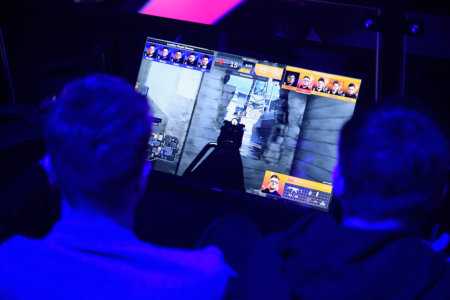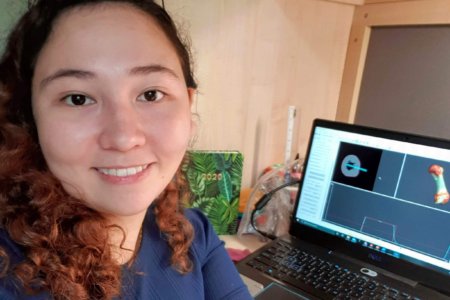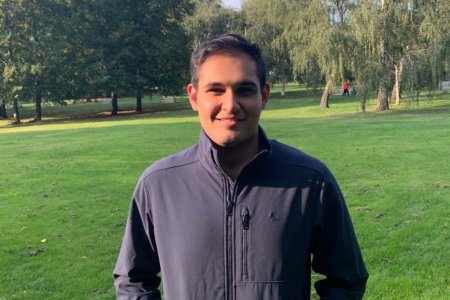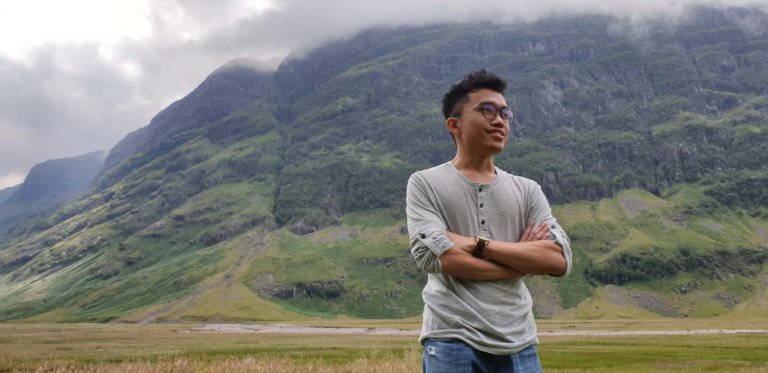
Esports, the global phenomenon with a market valued at just over US $950 million in 2020, is projected to reach US$1.6 billion by 2023. It’s a meteoric industry BA in Arts Management graduate Edward Tien plans to pivot into soon with an esports degree.
At a crossroads during the pandemic, Tien’s soul-searching led him to his passion for video games. He was intrigued by the management aspect of competitive gaming, from what it takes to host small and large scale events and build teams, to using digital marketing to promote them and exploring the culture of esports, its audience and fan base, as well as the dominant game genres that make up the industry.
A successful application for a GREAT scholarship — a programme funded by the British Council and the GREAT Britain Campaign — later and he’s on his way to Staffordshire University to pursue a degree in esports. Below we ask him more about his esports degree, Staffordshire University and how he got to land a prestigious scholarship to get him there:
Why did you choose to pursue your MA in Esports at Staffordshire University and the UK?
The MA in Esports course offered at my uni is an absolute hidden gem for video game enthusiasts and aspiring esports managers. On a personal level, it attracted my attention because of its holistic content. International Esports Policy and Planning is one of the interesting modules that drew my attention.
The goal of this module is to critically understand and analyse the esports-related policies around the world. Good policy planning is the key to improve the global esports ecosystem. It’s also encouraging to hear that Staffordshire University provides great support for disabled students and unis can lead a good example for society through this inclusivity.
Most importantly, I love the cultural diversity and wide selection of food in the UK. I’m also a fan of British humour. It’s changed my perceptions towards living a mundane lifestyle. I’ve started to observe the nuances of everyday life on a deeper level with humour that makes everything seem livelier — even in cold winter lockdowns.
Do you think it would have made a difference if you studied at a local institution?
Having this wonderful opportunity to study in the UK was definitely a turning point in my life. Firstly, there are no postgraduate esports programmes offered at local institutions.

“I love the cultural diversity and wide selection of food in the UK. I’m also a fan of British humour.” Source: Edward Tien
Additionally, I have a purpose in life to understand the world more as I grow older. If I were studying locally, there would be a geographical limitation for me to learn from wonderful cultures across the globe. We are currently living in a digital age that is shallow and superficial. A virtual space where traditional cultures are bombarded with the unique cyberculture such as the internet memes. In order to experience the authentic cultures, it’s important to travel the world and be exposed to them. This minimises the first impression assumption or the biased human way of thinking.
What has been your most memorable class so far?
So far, it was my Managing Esports Arena Strategies module, a lecture on how to create interesting podcasts to build our portfolio. A preparation for us to create our own group podcast assignment discussing topics about arena owners, rights holders, league developers and strategies for events in esports.
Stuart Kosters is the lecturer here and one of the coolest ones I’ve met. During his class, my coursemates and I learned some quirky tricks to become professional podcasters — breathing techniques, analysing structures and exploring tone variations. An unforgettable moment was hearing everyone sounding like Donald Duck or an anime character when we were experimenting.
How have your lecturers supported you in your studies thus far?
It’s unusual to have online lessons when many countries around the world experienced COVID-19 lockdowns. Just like the “Thanos Snap” from the “Marvel Universe”, this unprecedented outbreak has forced us to create new norms. During such lockdowns, the uni implemented online learning for students. The lecturers were friendly and approachable where I was always able to have two-way conversations with them during online lessons.
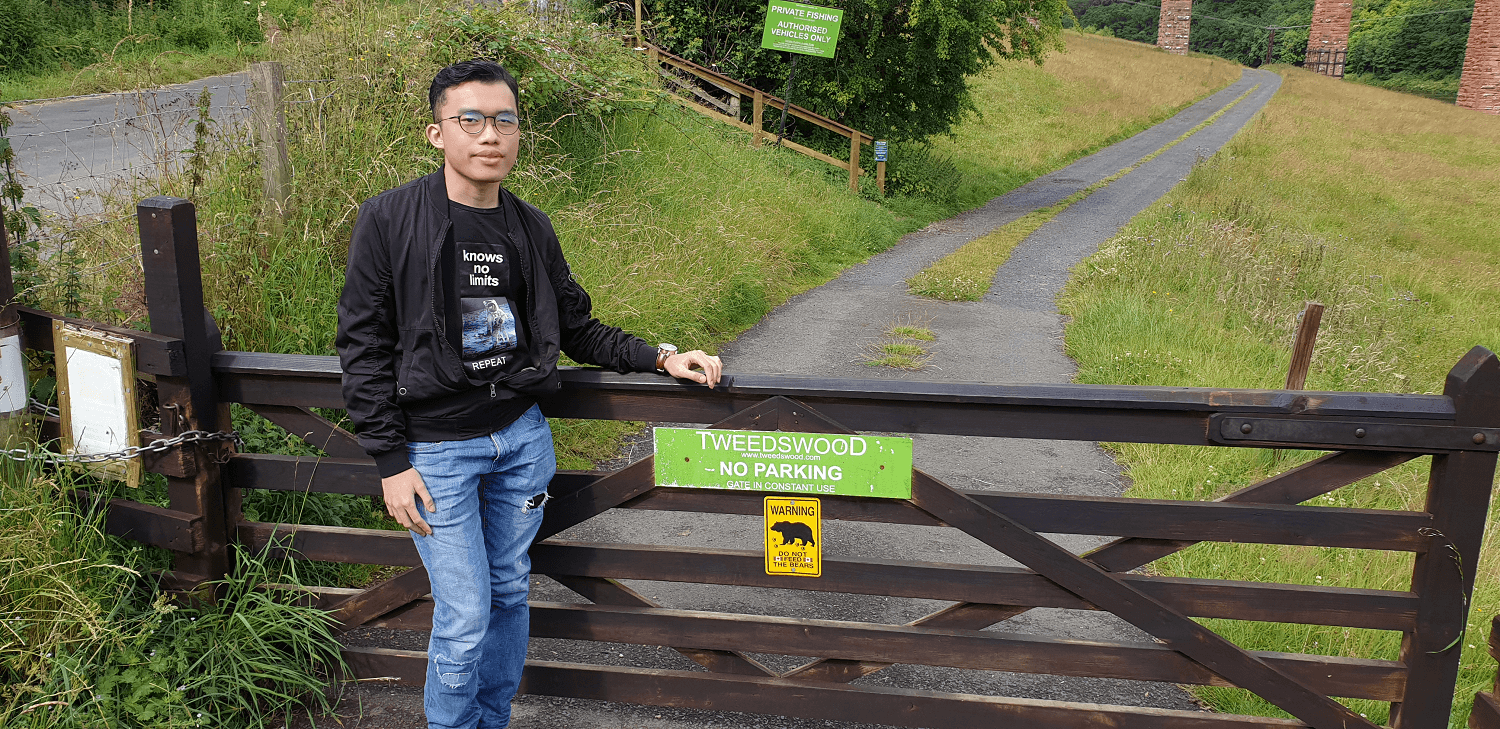
Tien is looking forward to operating the esports arena facilities at Staffordshire University. Source: Edward Tien
For example, conducting class debates or group discussions in the breakout rooms and preparing the necessary reading materials for the lessons were some of the things the lecturers did to support our learning. They also had weekly consultations with me and are readily available to reply to my messages even during the weekends.
What are the practical learning elements in your esports degree?
Currently, there are limited practical learning elements due to the lockdowns in the UK. Other than the podcast that I previously mentioned, the more practical side was to use a software called SketchUp that designs blueprints for esports events.
My coursemates and I created interesting event spaces that benefit different stakeholders’ interests (like audience and fans), game developers, esports teams, brand sponsorships and players. Furthermore, I am also currently designing a website and writing a blog about the topics discussed with the hope that people will have better knowledge in the recent exponential growth of this industry.
I am also eager to return to campus as the UK have finally announced that unis will start practical classes again. I look forward to operating the esports arena facilities built exclusively for esports students on the campus at Staffordshire University. In addition to that, I will partake in organising physical esports events for charity purposes in the latter half of this year.
What are your academic goals with your esports degree?
My academic goal is to strive for the best! “Shoot for the moon. Even if you miss, you’ll land among the stars,” is what Norman Vincent Peale — the author of “The Power Positive Thinking” once said. With that in mind, I always remind myself to prepare for the worst and hope for the best.
I accumulated research skills and critical thinking skills. These two intertwined so I am able to understand the complex esports history, culture, political economy and interesting phenomena in countries across the globe.
Nowadays, research is particularly important to progress in this field. I learnt research designs, research methodologies, and research ethics that apply to a wide variety of research problems. Moreover, the ability to analyse local and global esports ecosystem, a top-down approach (Esports governance) versus the ground-up approach (grassroots community).
In recent years, the mammoth billion-dollar video game developers, national esports associations, international esports associations and government bodies are playing a huge role promoting it. Acquiring critical thinking skills is important to decipher multi-dimensional ecosystems leading to greater heights with esports.
What advice do you have for students looking to study abroad in the UK?
I resonate deeply with one of Mark Zuckerberg’s inspirational quotes, “The biggest risk is not taking any risk,” he once said. Nobody knows how their lives would unfold in the future. No matter what beliefs you have, I recommend you go with your gut. You will only know the answer once you have fully experienced them.
What do you plan to do with this esports degree after graduating?
After my esports degree, I would love to work before I make further plans on studying. There is a wide career opportunity for esports now. Since 2015, Southeast Asia has been experiencing exponential growth in mobile gaming and has been actively involved in the expansion of the regional esports scene.
It would be great to work in esports-related careers across Asia. For instance, working in the local or international esports associations as a policy maker or an esports manager in a triple AAA video game company.
What’s one thing you miss from home and how do you substitute it?
I would say I miss my family members the most! I would video call them weekly as a substitute for their physical presence.








